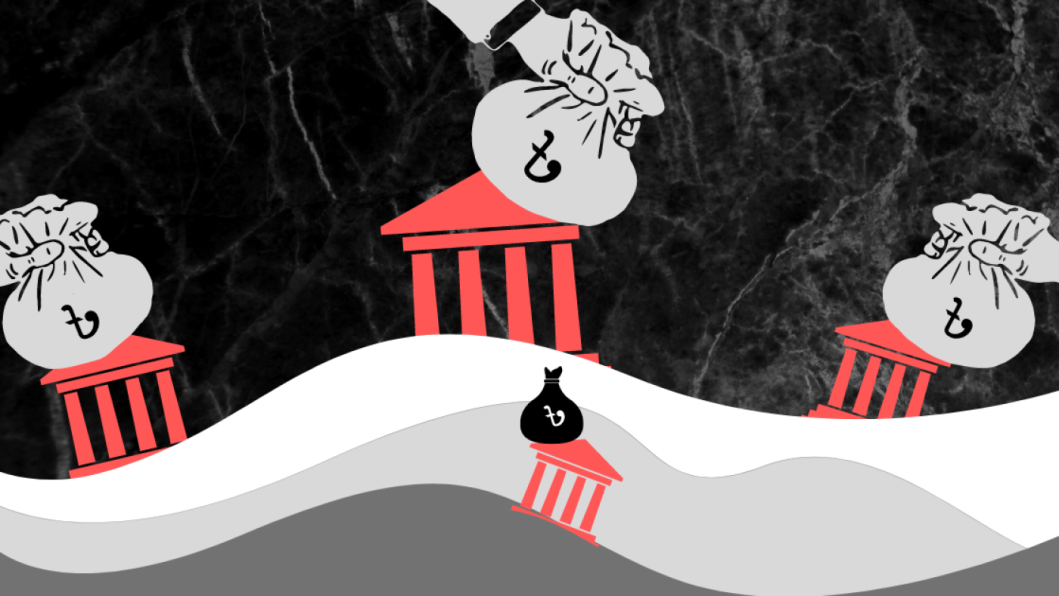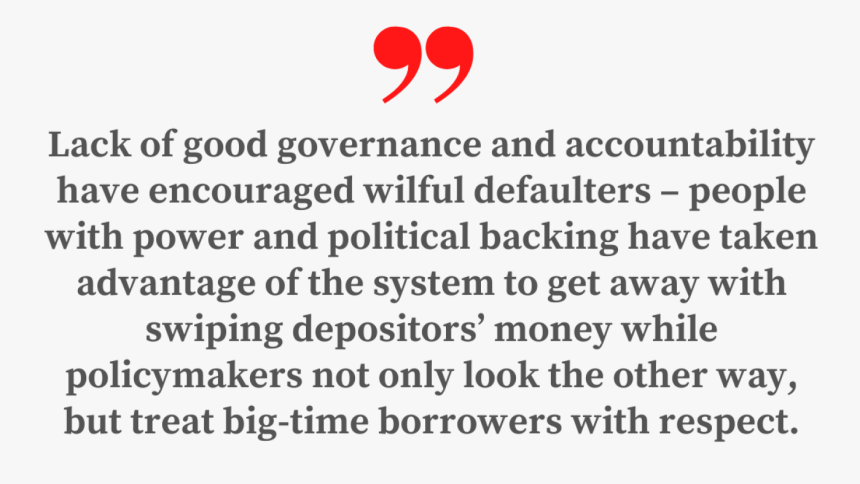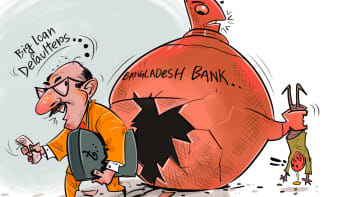Loan defaulters are putting the banking sector at risk

Despite economic progress over time, Bangladesh's financial sector continues to be dominated by banks that stand on shaky ground and threaten the stability of the overall financial system. While the role of the banking sector in domestic resource mobilisation and investment is crucial for contributing to employment and economic growth, currently, it is not capable of fulfilling these objectives.
The burden of non-performing loans (NPLs) is one reason for this. As of September 2022, NPLs amount to a whopping Tk 134,396 crore – 9.36 percent of total outstanding loans in the banking sector (this was 8.96 percent in June). State-owned commercial banks (SCBs) have the highest share – with NPLs being 23.04 percent of their total outstanding loans.
High NPL constrains the fiscal space of banks by limiting loan expansion, forcing banks to forego interest on those loans as well. It limits their capacity to take risks, increasing the cost of funds, and also leads to capital shortfall since banks need to keep provisions to cover their NPLs. Return on assets and equity, and capital liquidity are affected as well.
The Bangladesh Bank's Guidelines on Risk Based Capital Adequacy (December 2014) state that banks must maintain a minimum total capital ratio of 10 percent (or minimum total capital plus capital conservation buffer of 12.5 percent) by 2019. Our SCBs have failed to maintain these minimum requirements, which are meant to strengthen banks' regulation, supervision and risk management.
It has been argued that NPLs have increased due to global economic challenges, high inflation and post-pandemic circumstances making it difficult for borrowers to pay back loans. This logic is very weak, since NPLs have been high for several years. Also, there was a moratorium on loan classification during the pandemic, meaning the current level of NPLs may actually be an under-estimation.
Clearly, the problem is deep rooted. Lack of good governance and accountability have encouraged wilful defaulters – people with power and political backing have taken advantage of the system to get away with swiping depositors' money while policymakers not only look the other way, but treat big-time borrowers with respect. If this does not change, the problem of NPLs may never disappear from Bangladesh.
Nevertheless, policymakers must consider certain measures to reduce this burden. First, there is no need for so many banks. While policymakers have argued this helps financial inclusion, the truth is that many bank licenses have been given out as political favours. Bank directors also use each other's banks to take loans out themselves, some of which become defaulted. And given that banks failed to act upon the government's directive of providing loans to small and medium enterprises during the pandemic, it can be easily argued that a greater number of banks has not led to financial inclusion.

Second, many second and third generation banks are facing difficulties in performing. The Bangladesh Bank should appoint a strong administrator to monitor these troubled banks. There must be a structured exit policy for such banks, particularly taking into cognisance the ineffectiveness of the Oriental Bank model, which failed because of large capital shortfall.
Third, internal control departments of SCBs should be strengthened. Often, these departments willingly or unwillingly fail to inform the Board of Directors regarding large losses. There is a need for capacity development of human resources in SCBs to deal with this.
Fourth, the independence of the central bank has been seriously compromised over the years. To guarantee autonomy, the Bangladesh Bank Amendment Bill 2003 was prepared. However, its spirit has been lost due to interference in Bangladesh Bank's activities from external players, especially the Financial Institutions Division (FID) of the Ministry of Finance (MoF), which has been disrupting the Bank's sovereignty. The state-owned banks are practically controlled by the MoF, though they are supposed to be administered by the Bangladesh Bank. State-owned banks are in desperate need of board members who are competent professionals with no political connections.
Fifth, the judicial process should be reformed so that cases of financial scams and irregularities are expedited. There should be a special tribunal for bank defaulters to ensure speedy recovery of defaulted loans, and human resources should be increased to reduce backlog of cases. Additionally, the Bankruptcy Act 1997 should be strengthened to resolve such cases.
While the above are technical solutions to the problem, their success depends on strong corporate governance, because the problem is a structural one. If loans are not given on commercial considerations, there will always be risks of default. If the central bank is not allowed to function independently, there will always be problematic decisions. Sadly, we are in a state where the Bangladesh Bank cannot punish wilful defaulters. In fact, many of its decisions are actually influenced by these same people who thrive on depositors' hard-earned money.
The government will have to decide whether it will continue to give leeway to the dishonest, at the cost of risking the banking sector and the interests of the ordinary citizens of this country.
Dr Fahmida Khatun is the Executive Director at the Centre for Policy Dialogue.

 For all latest news, follow The Daily Star's Google News channel.
For all latest news, follow The Daily Star's Google News channel. 










Comments